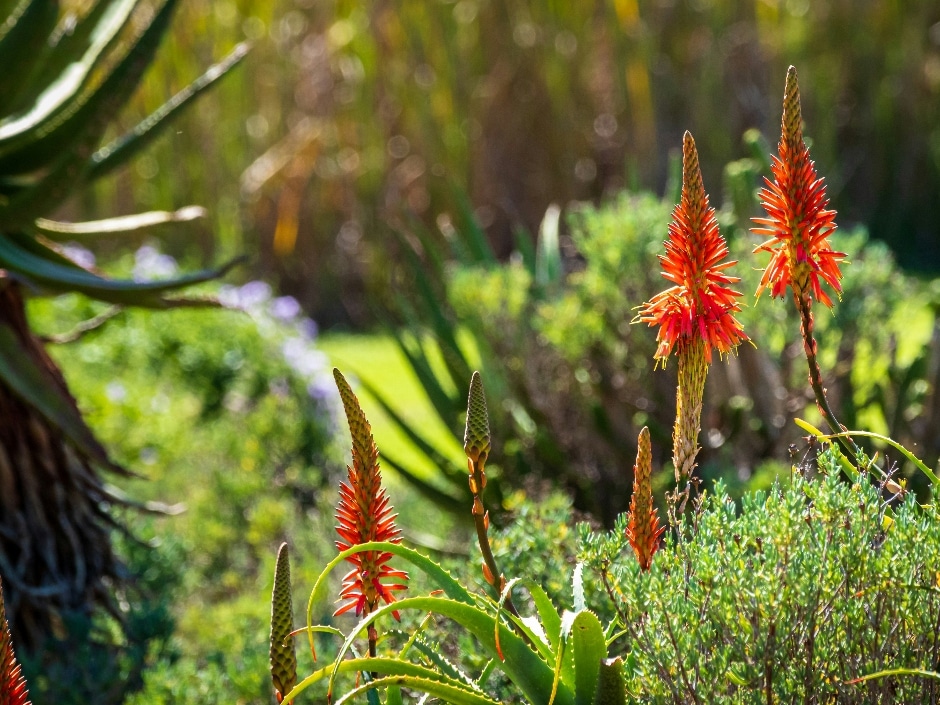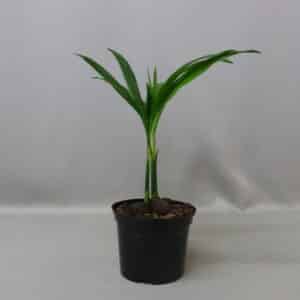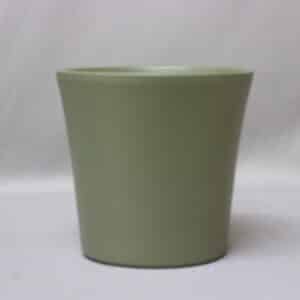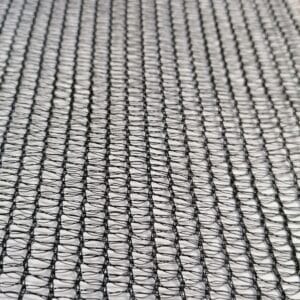Walk on the Wild Side
Indigenous and fynbos

Walk on the Wild Side
Indigenous gardens are very fashionable as they are known to attract local birds and butterflies and also require less watering and maintenance.
The coastal region often experiences very windy conditions which play havoc with even the most experienced gardeners. So think carefully when selecting indigenous plants for your garden.
Coastal gardening is a challenge, but if you follow the right rules it is fun and very rewarding. As a student horticulturist I spent three months working on the beachfront with the aim of providing landscaping that would be visually appealing to visitors. This was never easy as we found only a handful of plants that would survive in the salty conditions.
Below is a list of indigenous plants – trees, shrubs, ground covers, bulbs and annuals – which will provide year round colour, and ensure that you don’t have to buy new plants because the ones you planted three weeks ago have already died.
As the garden establishes you can add some colour with indigenous annuals which will also survive the salt breezes. Get to know your indigenous plants so that you are not ignorant to the fact that, unless the plant is exotic, it won’t be attractive.
There are many trees which will provide shade in summer, flowers in winter and even autumn colours in the dry winter season. The size of your garden will determine what tree you select.
This is a guide to indigenous plants that you can successfully plant in local gardens :
- Evergreen trees: Natal mahogany (Trichilia dregeana), coastal red milkwood (Mimusops caffra), Natal plum (Harpephyllum caffrum), white pear (Apodytes dimidiata), dune soap berry (Deinbollia oblongifolia), Natal guarri (Euclea natalensis), lagoon hibiscus (Hibiscus tiliaceus) and white milkwood (Sideroxylon inerme).
- Deciduous trees: Coastal coral tree (Erythrina caffra), common coral tree (Erythrina lysistemon), coastal gold leaf (Bridelia micrantha), flat crown (Albizia adianthifolia), giant leaf fig (Ficus lutea), Natal fig (Ficus natalensis), forest fever berry (Croton sylvaticus) and umzimbeet (Milletia grandis).
- Shrubs: Coastal silver oak (Brachylaena discolor), Natal box (Buxus natalensis), Dune num-num (Carissa macrocarpa), tick-berry (Chrysanthemoides monilifera), forest indigo (Indigofera natalensis), river bells (Mackaya bella), weeping bride’s bush (Pavetta lanceolata), September bells (Rothmannia globosa) and bird of paradise (Strelitzia reginae).
- Ground cover: Creeping foxglove (Asystasia gangetica), dune blue barleria (Barleria obtusa), Natal dune vygie (Carpobrotus dimidiatus), Marsh lily (Crinum macowanii), falling star (Crocosmia aurea), large flowering dietes (Dietes grandiflora), gazania (Gazania rigens) and flame lily (Gloriosa superba).
- Palms, cycads and form plants: Date palm (Phoenix reclinata), ilala palm (Hyphaene coriacea), stangeria (Stangeria eriopus), Encephalartos ferox, dune aloe (Aloe thraskii) and Natal coastal cabbage tree (Cussonia nicholsonii).
You might also like
Shop online
-


MINI ADULT 8+ 8KG
- R1,004.99
- Add to cart Learn More



